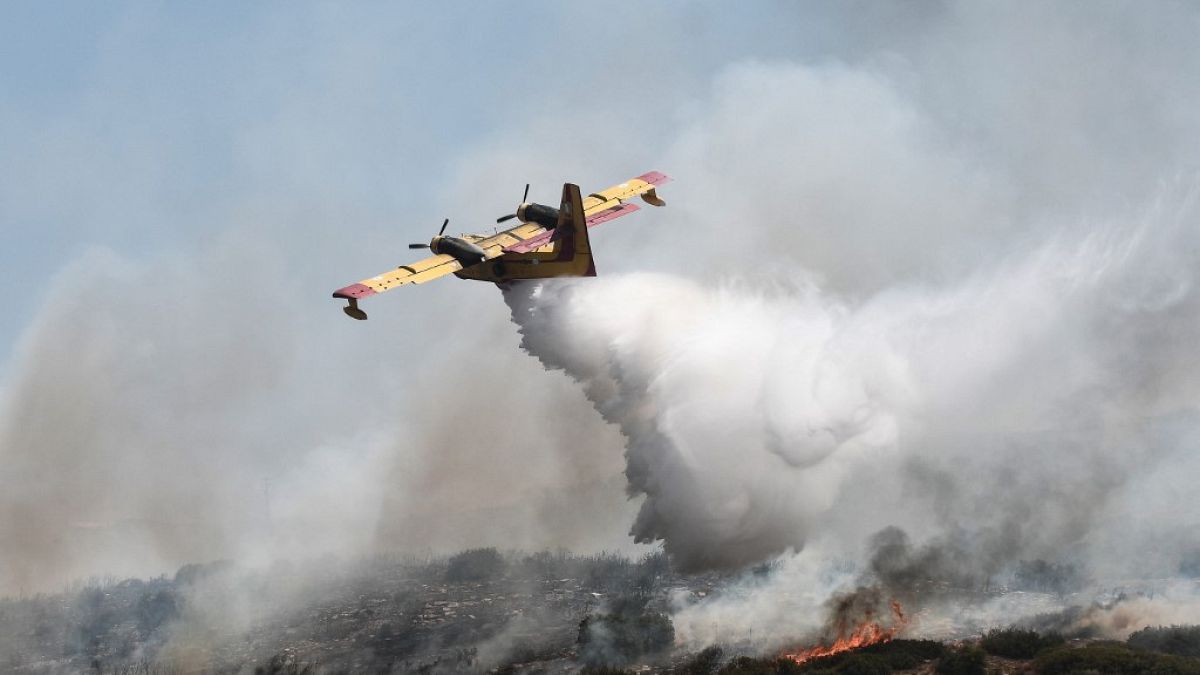After 2 weeks of devastating wildfires ravaging Greece, the blazes are beginning to show signs of dying down. However, firefighters remain on alert, battling flareups across the country.
As tourists start to trickle back to the Greek island of Rhodes, some people are spending their vacation on empty beaches amongst charred trees and burnt land.
The fires, spurred by a sweltering heat wave that blanketed the country, triggered a huge evacuation of residents and tourists on the island last weekend as forests burned for a week.
As wildfires scorched the land, tourist and residents worked to extinguish fires at seaside resorts. By Friday, temperatures eased somewhat, and calmer winds helped firefighters contain the blazes.
Fires have been raging across Greece, including outside Athens and in Rhodes, fueled by three consecutive heat waves. Five people have died in the fires, including two firefighter pilots. Temperatures pushed 40 degrees Celsius.
According to the European Commission and the Joint Research Centre, a total of 135 000 hectares were burned in Greece, Italy, Algeria and Tunisia in just 12 days.
Furthermore, they reported some 120,000 people have so far been affected by the wildfires in those four countries.
However, they believe it to be a conservative estimate, as the data does not include those that suffered the effects of the fires, such as smoke pollution, evacuations, etc.
The wildfires have also affected over 20 000 ha of Natura2000 protected areas in Italy and Greece. In the month of July alone, 3.5 million tonnes of CO2 have been emitted in Greece as a result of the wildfires.
Climate change is making the world hotter and is charged this year by the natural and cyclical El Nino event, which warms the Pacific. The Mediterranean – from Spain to Turkey to North Africa — has withered under record-breaking temperatures over the summer. July is the hottest month globally ever recorded, and it's likely 2023 will be the hottest year.
